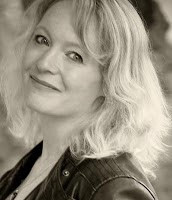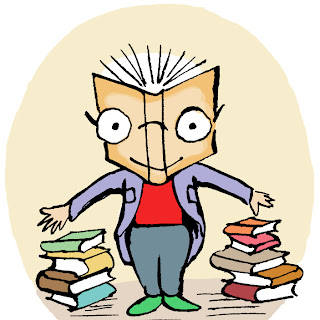WRITERS' MINDS Joseph Coelho
Joseph Coelho is a performance poet and playwright (and SCBWI member). He is a favourite of teachers everywhere, writes Jools Abrams, who uses his poems herself when tutoring. He does school visits too and this month (February 2018) is appearing at a school event in her local town, the Bishop's Stortford College Festival of Literature 2018. She will be popping down to say hello.
His plays have received special note from The Verity Bargate Award and The Bruntwood Playwriting Competition. His debut poetry collection Werewolf Club Rules is published by Frances Lincoln and won the CLPE CLiPPA Poetry Award 2015. His latest collection, Overheard In A Tower Block, has been nominated for the 2018 Carnegie Medal. Both of his solo poetry collections have been featured as a Sunday Times Book of the Week.

You can find out more here.
In the meantime, he was kind enough to respond to the Writers' Minds questions.
1. Inspiration – where do your ideas for a story come from? Hunter or gatherer?My background is in theatre and performance poetry. With those forms the intention is first and foremost a connection with the audience, a desire to express or share something about the world during a live event. When I think about the stories that I have had published or produced, they have often grown out of that intention. For instance, my debut picture book Luna Loves Library Day came out of my shock from hearing that over 50% of families are not the 'traditional' set-up of mum, dad, and two kids. Many families are broken or blended, or have a make-up that is not regularly reflected. I wanted to give space to a non-traditional family setup in a narrative that was both celebratory and magical. I feel that once the intention is clear, the story tends to click into place, so I guess that makes me a gatherer, but even the best gatherers must first have the intention to eat!

2. Are you a plotter or a pantster – is there method in your process, or do you fly by the seat of your pants?I only recently came across these terms (thank you #UKMGCHAT) and think they are wonderful definitions. I think in practice I’m boringly down the middle – I tend to start flying, get to the end and then realise that the plot holes and inconsistencies can only be fixed by a whole tonne of plotting. Like sculpting, I tear off a huge ugly lump of clay about the size of the thing I want to make, and then after roughly shaping, I smooth and polish and get out the tools, and painstakingly pinch and mould and create.
3. Shed sitter or café dreamer? Where do you write?I used to write in cafés – I would spend days wandering around London looking for quiet spots, but this was when I was London-based and had no space of my own at home (save for an airing cupboard with a shelf that could double as a desk when the door was open). Now that I have my own space I find cafés, more often than not, distracting. If you can find that quiet corner with just the right amount of background buzz and good coffee then they can be great, but in my experience those moments are too few and far between to make cafés useful writing spots. At home, I have a book-filled spare bedroom that doubles as an office. I write at a huge dinner table that gives me room to spread out. On the table I have a standing desk attachment that enables me to stand and write. This was a necessary purchase as my back and shoulders were killing me from continual slumping at my desk in a horrible office chair.
4. Do you have any artefacts, mottos, or words of wisdom by your desk?Oh yes, I live near the beach and am constantly beachcombing. Many of my finds end up on my desk, including fossils, shells, a hag-stone, sea glass, a plastic Mickey Mouse, and a Jiminy Cricket Disney cup that I have had since childhood. I also have a few postcards from various art galleries that I find inspiring, like Las Meninas No 1 by Pablo Picasso that I use as a reminder of the many forms your art, your story, can take.
5. Target word count per day or as and when it comes?When I’m in a flow I tend to write around 3000 words a day but it can be as little as 500 when I get to a sticky bit. I tend not to give myself targets of words, but targets of chapters or first drafts of poems.
6. High days and holidays? Do you write seven days a week, or weekends and holidays off?I write seven days a week when I can because I enjoy it, and so a holiday for me is having time to write without any of the other distractions of emails or admin. When I’m writing for long periods I need to remind myself to leave the house, as I can quite happily stay indoors for days on end!
7. Quill or keyboard? Pen or technology?When at home I’m keyboard-bound, but on the road I carry a notepad and pens. I like the versatility of the keyboard and the freedom it gives to cut and paste text and move it around. Notepads are great for doodling in the margins. I have been known to compose poems on my phone when on the move, but this is out of necessity rather than preference.
8. Music or silence to write to?On the whole, I write to silence, but at times I listen to a playlist of carefully selected albums that I find I can write to. There are not many musicians who fit this criteria. Mine are Chet Baker and Jeff Buckley, and some Nina Simone. The songs need to be gentle and emotive, and not too repetitive or singalong.
9. Chocolate or wine?Must I choose? I probably have far too much chocolate. I can’t do dairy so whenever I find dairy-free chocolate or dark chocolate, I feel obliged to indulge. I may have a tipple in a long writing period, especially in an evening, but my drink of choice when writing is lots of tea: English Breakfast and Lapsang or other smoky teas like Gunpowder, with the occasional coffee thrown in.
10. Perspiration or inspiration?Inspiration does not go very far if it is not sweated over, interrogated, and analysed. When inspiration is hard to find, perspiration can open the pores and get that blood-song flowing.
11. Where do you find the muse? Any techniques for inspiration?I very much enjoy taking photos, especially of insects and flowers, and visiting art galleries. I find that having hobbies that totally take you away from the process of writing can be hugely helpful in bringing the muse forward.

12. Do you ever hear your character’s voice in your head? Have you ever seen them in real life?When writing dialogue I tend to speak the character’s lines out loud and almost become them. I find it helps with writing dialogue that sounds true and connected to the character, rather than me putting words into their mouths. Occasionally I hear them in my head, and then it's just a case of writing down what they say. I’m yet to see one of my characters but look forward to that day.
13. If there was one piece of advice or wisdom you could impart to other writers about the craft of writing, what would it be?Own your artistry. Don’t seek permission, don’t assume there is a right or wrong way of doing something. Be bold and brave in your decisions; the only no-no is not working your craft hard enough. Strive forward with your way of doing things, interrogate it, question it, feel it, and work it. The world is hungry for your uniqueness, for what you have to offer.
*********************************************************************************
 |
Jools Abrams is an award-winning writer, with an MA in creative writing and children's literature. She's also a qualified primary teacher, a forest school practitioner, has worked in independent cinema and the arts, and is mother to two older teens.
Blog: shewhodareswrites.blogspot.com Twitter: @joolsdares Carry de la Harpe is features editor for Words & Pictures Contact: writers@britishscbwi.org Twitter: @Carry_delaHarpe |











No comments:
We love comments and really appreciate the time it takes to leave one.
Interesting and pithy reactions to a post are brilliant but we also LOVE it when people just say they've read and enjoyed.
We've made it easy to comment by losing the 'are you human?' test, which means we get a lot of spam. Fortunately, Blogger recognises these, so most, if not all, anonymous comments are deleted without reading.